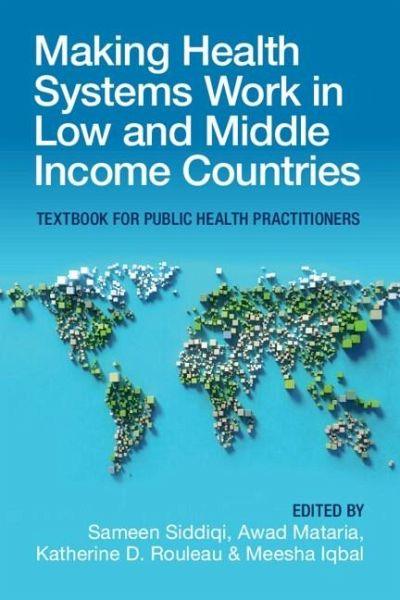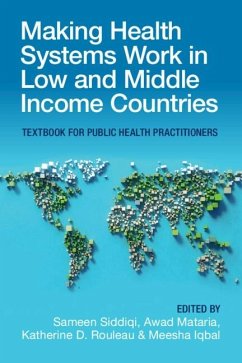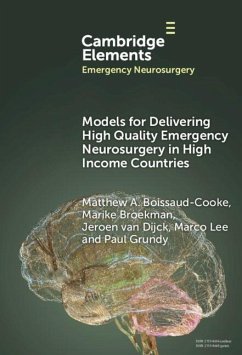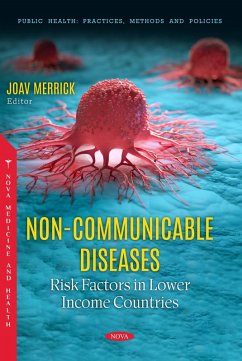
Making Health Systems Work in Low and Middle Income Countries (eBook, PDF)
Textbook for Public Health Practitioners
Redaktion: Siddiqi, Sameen; Iqbal, Meesha; Rouleau, Katherine D.; Mataria, Awad
Versandkostenfrei!
Sofort per Download lieferbar
46,95 €
inkl. MwSt.
Weitere Ausgaben:

PAYBACK Punkte
23 °P sammeln!
The importance of health systems has been reinforced by the commitment of Low- and Middle-Income Countries (L&MICs) to pursue the targets of Universal Health Coverage, Health Security, and to achieve Health-related Sustainable Development Goals. The COVID-19 pandemic has further exposed the fragility of health systems in countries of all income groups. Authored by international experts across five continents, this book demonstrates how health systems can be strengthened in L&MICs by unravelling their complexities and by offering a comprehensive overview of fundamental concepts, performance ass...
The importance of health systems has been reinforced by the commitment of Low- and Middle-Income Countries (L&MICs) to pursue the targets of Universal Health Coverage, Health Security, and to achieve Health-related Sustainable Development Goals. The COVID-19 pandemic has further exposed the fragility of health systems in countries of all income groups. Authored by international experts across five continents, this book demonstrates how health systems can be strengthened in L&MICs by unravelling their complexities and by offering a comprehensive overview of fundamental concepts, performance assessment approaches and improvement strategies to address health system challenges in L&MICs. Centred on evidence and advocacy this unique resource on health systems in L&MICs will benefit a wide range of audiences including, readers engaged in public health practice, educational programs and research initiatives; faculties of public health and population sciences; policymakers, managers and health professionals working for governments, civil society organizations and development agencies in health.
Dieser Download kann aus rechtlichen Gründen nur mit Rechnungsadresse in A, B, BG, CY, CZ, D, DK, EW, E, FIN, F, GR, HR, H, IRL, I, LT, L, LR, M, NL, PL, P, R, S, SLO, SK ausgeliefert werden.













